
Use of an ixabepilone-based companion diagnostic may identify patients with metastatic breast cancer who may benefit from ixabepilone monotherapy.

Your AI-Trained Oncology Knowledge Connection!


Russ Conroy is an Associate Editor for CancerNetwork. He grew up in Hillsborough, New Jersey, and graduated from Rutgers University-New Brunswick in 2022.
On the weekends, he likes to unwind by playing video games with friends, tailgating at Rutgers football games with his family, or building his music collection with a visit to Princeton Record Exchange.

Use of an ixabepilone-based companion diagnostic may identify patients with metastatic breast cancer who may benefit from ixabepilone monotherapy.

The FDA sets a Prescription Drug User Fee Act date of January 12, 2024 for the biologics license application for zolbetuximab in the management of Claudin 18.2-positive advanced gastric or gastroesophageal junction adenocarcinoma.

The safety profile of durvalumab plus tremelimumab among those with unresectable hepatocellular carcinoma in the phase 3 HIMALAYA trial was comparable with the known profiles of each individual agent.

Datopotamab deruxtecan produces no new safety signals among patients with locally advanced or metastatic non–small cell lung cancer in the phase 3 TROPION-Lung01 trial.

Data from the phase 1/2 eNRGy trial assessing zenocutuzumab in patients with NRG1 fusion–positive cancer support the FDA’s breakthrough therapy designation for the agent as a treatment for pancreatic cancer.
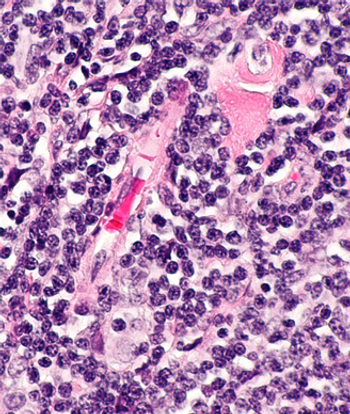
Investigators of the phase 1/2 EPCORE NHL-1 trial plan to discuss their findings with global regulatory authorities to determine the next steps for epcoritamab in the treatment of relapsed/refractory follicular lymphoma.

The oncolytic adenovirus VCN-01 is under investigation as a treatment for metastatic pancreatic ductal adenocarcinoma in the phase 2b VIRAGE trial.

An experimental cyclophosphamide-based prophylaxis regimen may also elicit a lower rate of chronic graft-versus-host-disease vs standard prophylaxis in patients with hematologic cancers.
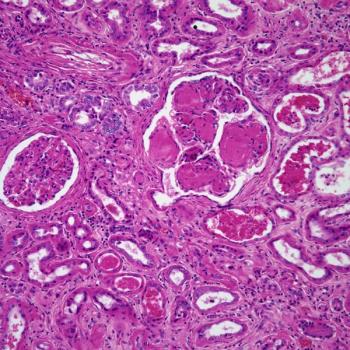
Investigators anticipate sharing data from a phase 1/2a trial evaluating inobrodib on its own and in combination with pomalidomide and dexamethasone among patients with multiple myeloma at a future medical conference.

Data appear to support a tailored treatment approach with induction and post–autologous stem cell transplant consolidation daratumumab and CVRd in those with ultra-high–risk multiple myeloma.

Investigators expect to have a readout of topline data from the phase 2 OPTIMIZE-1 trial evaluating mitazalimab plus chemotherapy in metastatic pancreatic ductal adenocarcinoma in early 2024.

Iopromide injection becomes the first FDA-approved contrast agent for visualizing known or suspected breast lesions in adult patients.

Findings from the phase 3 ADAM VTE trial indicate that apixaban yields lower rates of major bleeding compared with dalteparin as a thromboprophylactic treatment in patients with cancer.
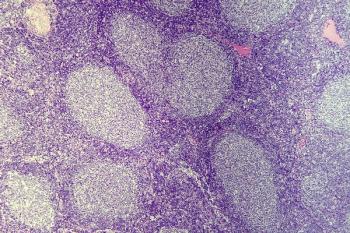
Treatment with liso-cel produces low rates of severe cytokine release syndrome in relapsed/refractory mantle cell lymphoma and follicular lymphoma in the phase 1 TRANSCEND NHL 001 trial and the phase 2 TRANSCEND FL trial.

Patients with relapsed or refractory multiple myeloma who have already undergone lymphodepletion are able to continue receiving treatment with CART-ddBCMA in the phase 2 IMMagine-1 trial.

Investigators of a retrospective study suggest that reducing myelosuppression may make chemotherapy safer and reduce the need for supportive care among those with extensive-stage small cell lung cancer.

Combining brentuximab vedotin with chemotherapy appears to significantly reduce the risk of death compared with chemotherapy alone among patients with advanced Hodgkin lymphoma.

Following safety reports of bleeding events after treatment with upifitamab rilsodotin among patients with platinum-sensitive ovarian cancer, the FDA places a partial clinical hold on enrollment for the UP-NEXT and UPGRADE-A trials.
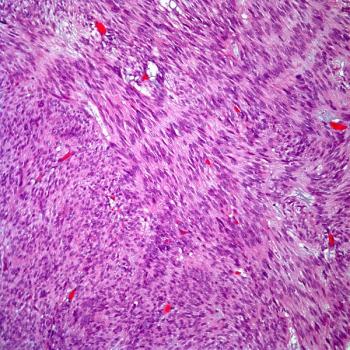
Combining pembrolizumab with trastuzumab and chemotherapy did not raise any new safety signals among patients with HER2-positive advanced gastric or gastroesophageal adenocarcinoma in the phase 3 KEYNOTE-811 trial.

The FDA sets a Prescription Drug User Fee Act date of February 13, 2024 for NALIRIFOX as a treatment for patients with metastatic pancreatic ductal adenocarcinoma.

Approval of the Droplex EGFR Mutation Test v2 may improve access to appropriate targeted therapies for patients with EGFR-mutated non–small cell lung cancer in Korea.
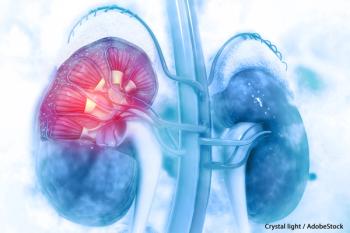
Data from the phase 2 KEYNOTE-B61 trial indicate that pembrolizumab plus lenvatinib’s safety profile in the first-line treatment of patients with non-clear cell renal cell carcinoma is safe and manageable.
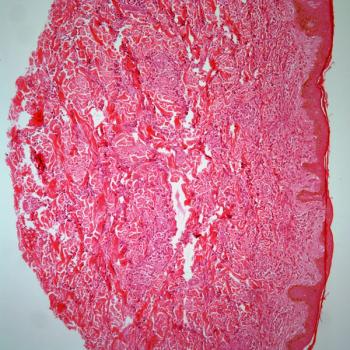
Investigators pause their evaluation of SC-DARIC33 in pediatric relapsed/refractory acute myeloid leukemia following a grade 5 serious adverse effect in the phase 1 PLAT-08 trial.

Inobrodib is under investigation as a treatment for patients with relapsed/refractory multiple myeloma and other hematologic malignancies in a phase 1/2a trial.

Data from the phase 3 CAPItello-291 trial support the new drug application for capivasertib plus fulvestrant as a treatment for patients with hormone receptor–positive, HER2-negative breast cancer.

The FDA’s approval of the FoundationOne Liquid CDx as a companion diagnostic may improve access to treatment with encorafenib plus cetuximab for patients with metastatic colorectal cancer harboring a BRAF V600E alteration.

A single infusion of ciltacabtagene autoleucel produces a manageable safety profile among patients with relapsed/refractory multiple myeloma in the phase 1b/2 CARTITUDE-1 study.

Findings from the phase 1b RedirecTT-1 study may support initiating larger studies evaluating teclistamab plus talquetamab for patients with relapsed or refractory multiple myeloma.

Olvimulogene nanivacirepvec virotherapy plus chemotherapy with or without bevacizumab produces a manageable safety profile in platinum-resistant or platinum-refractory ovarian cancer in the phase 2 VIRO-15 trial.

Adding blinatumomab to Interfant-06 chemotherapy appears to be feasible and safe in the treatment infants with acute lymphoblastic leukemia in a phase 2 trial.